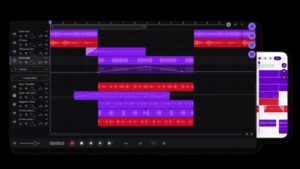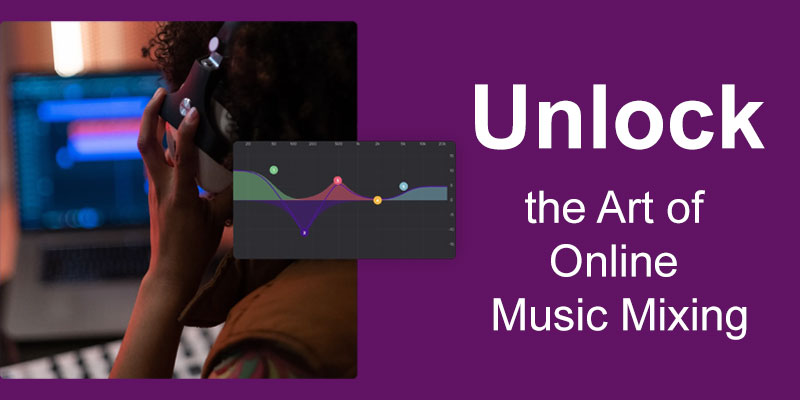The songs that we very fondly ‘tune in’ on the Radio or any popular Music App have certain beats and rhythms that make it interesting. The music producer essentially puts together different tracks from various instruments like; drums, guitars, and pianos and assimilates it. A lyrical song has vocal tracks that need to be combined with the soundtrack to compose a complete song. A good Mix makes a song come alive. In this Blog, we’ll delve into the essence of Mixing and uncover how to master the art of online Music Mixing.
Q: What exactly is mixing in music production?
A: Imagine a band playing live. Each instrument has its own distinct sound, but they all come together to create a unified musical experience. Mixing is like taking the separate recordings of each instrument and vocalist and blending them in a recording studio. The goal is to adjust their volume levels, add effects if needed, and create a cohesive and polished final product.
Q: Why is mixing so important?
A: A good mix can make or break a song. Even a well-written and performed piece can sound disjointed if the instruments and vocals are fighting for attention. Mixing helps each element shine through, creating a clear and balanced soundscape that enhances the emotional impact of the music.
Q: What does a mixing engineer do?
A: A mixing engineer uses their technical skills and artistic vision to shape the overall sound. Some engineers focus on achieving a natural, “live band” sound, while others embrace creative effects and manipulations. Regardless of their approach, the goal is to create a compelling and engaging listening experience for the audience.
Q: What equipment do I need to mix music?
A: To mix music effectively, you’ll need essential equipment such as Studio Monitors or high-quality Headphones for accurate sound reproduction. An audio interface is necessary to connect instruments and microphones to your computer, allowing for seamless integration into your Digital Audio Workstation (DAW) software. A MIDI controller helps you control virtual instruments and effects in your music software. Peripherals like microphones or MIDI keyboards can add more options for mixing and creativity.
Q: Analog vs. Digital Mixing: What’s the difference?
A: Traditionally, mixing was done on analog consoles, known for their warm sound. However, since online Music Mixing is relatively easy, digital mixing software has become increasingly popular due to its affordability and flexibility. Starting with digital tools is a great option for beginners, as software like Soundtrap offers a user-friendly interface with built-in mixing tools.
Q: What is Soundtrap?
A: Soundtrap is a cloud-based platform that offers a user-friendly interface for recording, editing, and online music mixing. Unlike traditional DAWs that require installation on your computer, Soundtrap functions entirely within your web browser. This makes it accessible from any device with an internet connection, allowing you to collaborate and create music on the go. A person from Dubai can collaborate with someone from New York in real time, sharing ideas and refining tracks together seamlessly.

Q: How Does Soundtrap Help with Online Music Mixing?
A: Soundtrap offers a revolutionary platform for online music mixing.
- Easy Workflow: Use drag & drop tracks, and adjust levels & effects with a user-friendly interface.
- Built-in Mixing Tools: EQ, Compression, Reverb/Delay & Panning for a polished mix.
- Real-Time Collaboration: Work on mixing music with others online.
- Cloud Storage & Version Control: Never lose your work, access mixes from any device & revert to previous versions.
- Optional Online Mastering: Achieve pro-sounding results without expensive studios.
In conclusion, mastering the art of mixing is essential for bringing your musical visions to life. With tools like Soundtrap, online music mixing becomes accessible and collaborative, empowering musicians of all levels to create professional-quality mixes from anywhere.






Recent Comments